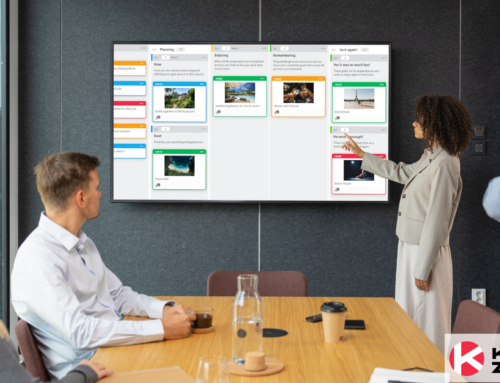
If you are new to project management, the landscape of principles, theories, and techniques can be daunting. It is crucial to start with the basics and build your understanding gradually over time.
We will introduce you to 10 key project management principles that will serve as a foundation for your learning journey. Each principle is explained in simple terms, with links to further resources for those who want to learn more.
By 2023, you will enter the project management world as a beginner with a strong understanding of the basics.
What is Project Management?
Project management involves planning and overseeing a project from beginning to end. A project manager who can keep things on track and ensure that all the pieces are moving in the right direction is crucial for the success of any project.
It is a complex process that requires a lot of skill and expertise, but a project needs to reach completion and stay within budget.
If you want to become a project manager in the future, these ten key principles are a great place to start.
Importance of Project Management
- Strict Project Scheduling. An effective project manager sets goals, budgets, and schedules that are reasonable and doable while taking the big picture into account.
- Lower Project Costs. Project management lowers project costs by increasing productivity, reducing risks, and maximizing resources.
- Specific Goals and Objectives. A skilled project manager sets clear goals and objectives so that the team can concentrate on the appropriate activities at the appropriate times and adjust as necessary.
- Controlled Process. Project managers work with teams to divide a project into smaller, more manageable chunks.
- Quality Control. Project management is only complete with quality control. To ensure that everyone is working toward the same goals, project managers assist in defining quality standards.
10 Key Project Management Principles
By now, you may have realized that project management is a complex field involving many different techniques and strategies.
As a beginner, it can take a lot of work to start. Here is a list of 10 key project management principles that will help you get started in 2023:
1. Defining the scope of your project
Before beginning a project, you must first define its scope. What is the goal of this project? What actions must be taken to accomplish that objective? This will help you determine what steps need to be taken, what resources are needed, and how much time it will take to complete the project. Identifying any potential roadblocks and finding ways to overcome them is also important.
2. Creating a project roadmap
You have created a project plan and defined your objectives, but how do you ensure everyone is on the same page? One way to do this is to create a project roadmap. A project roadmap is a high-level plan that shows the key stages of your project and the dependencies between them.
A roadmap presentation can give stakeholders an overview, track progress, and identify potential risks and issues. When creating a project roadmap, it is important to keep it flexible. Things can and will change during a project, so make sure your roadmap allows for amendments.
3. Assembling your project team
By now, you have your project and know what to do to complete it. The next stage is to put together your project team.
Your project team will be responsible for completing the tasks necessary to bring your project to fruition. As such, it is important to carefully select team members with the skills and knowledge required to do the job.
When creating your team, be sure to consider the following factors:
- Experience and qualifications
- Availability and flexibility
- Personality and work style
4. Managing risks
Managing risk is one of your most important tasks as a project manager. This means forecasting potential problems and developing contingency plans to address them. Taking proactive steps to mitigate risk can minimize the chances of your project going off track.
There are a few key principles you should keep in mind when managing risk:
- Establish a clear goal for your project and ensure everyone is on the same page. This will help you stay focused and avoid getting sidetracked.
- Make sure you have a good understanding of the risks involved and how they could impact your project.
- Have a solid plan in place for dealing with unexpected setbacks.
- Manage expectations and keep stakeholders informed of any risks or potential problems.
- Keep an open mind and be prepared to adjust as necessary.
- Keep a close eye on the project budget and make sure you have enough funds allocated for unforeseen problems.
- Anticipate potential roadblocks and develop backup plans to deal with them.
- Stay organized and track all the moving parts involved in your project.
- Delegate responsibilities wisely and ensure everyone knows their roles and responsibilities.
- Celebrate small victories along the way and stay positive even when things are tough
5. Tracking progress and maintaining communication
Once the deal is closed by the sales team, you can integrate CRM software with a project management tool and maintain communication without leaving any conversation history behind. CRM helps with lead generation, and choosing the best project management tool helps with client retention. It’s best to have access to the entire conversation history from start to end.
As a PM, one of your major tasks is to track the project’s progress and keep all stakeholders in the loop. This means maintaining regular communication with team members, clients, and other stakeholders and issuing regular status updates.
It is also important to adapt quickly to changes in the project plan and ensure that everyone is on the same page. This means effectively managing conflict and keeping the team focused on the task.
6. Avoiding scope creep
As you start your project management journey, knowing the risks associated with scope creep is essential. This is when the project’s original parameters are gradually expanded, often resulting in delays, budget overruns, and quality issues.
It is important to set clear boundaries and limits to avoid scope creep. You should also have regular checkpoints during the project to ensure that everyone knows what has been added and what needs to be completed.
7. Dealing with changes in the project
As your project progresses, you may need to make changes to stay on track or meet your original goals. This is perfectly normal, and in fact, changes are an inevitable part of any project.
However, it is important to handle changes in the project effectively so that they avoid causing too much disruption or jeopardize your outcome. There are a few key things to remember when dealing with changes in the project:
- Always communicate any changes to the team immediately so everyone knows what is going on and can plan accordingly.
- Make sure you have a solid plan for how you will implement the change and what impact it will have on the overall project timeline.
- Keep an open mind and be prepared to make adjustments as needed.
The team’s objective should always be to deliver the project on time, within budget, and to the agreed-upon specifications.
8. Managing dependencies
One of the most important aspects of project management is managing dependencies. This means ensuring that all tasks are completed in the correct order and that no new task starts until all the necessary dependencies are fulfilled.
If you are new to project management, it is important to know the different types of dependencies between tasks. There are three main types:
- Sequential dependencies occur when one task can not start until another task is completed.
- Concurrent dependencies occur when two or more tasks can be started simultaneously but need to be completed in a specific order.
- Mutual dependencies occur when two or more tasks depend on each other and must be completed in parallel.
9. Know your budget
Project managers often need more resources to work with. You need to budget your financial resources carefully, give yourself some margin for unexpected expenses, and take reasonable measures to save costs during your project.
Your budget is linked to your project schedule; if your timeline gets wrecked, your budget will also. Make sure to have project scheduling tools and see if you have accounted for how long each project task should take and for things like holidays, corporate and stakeholder events, and team member vacations.
10. Wrapping up your project
Congratulations! You have made it to the end of your project. Now it is time to wrap things up and put your final touches on everything.
Here are a few key things to remember:
- Make sure all deliverables are accounted for and delivered on time.
- Document your project and all processes used.
- Archive all project files and materials.
- Thank everyone who helped you along the way.
- Evaluate how the project went and what you could do better next time.
- Celebrate your success!
Upgrading your project management skills
You should understand the basics of project management and how to put them into practice. But learning is never-ending, and as your skills develop, so should your understanding of project management principles.
It is essential to keep learning and expanding your skillset in today’s fast-paced world. The good news is that there are plenty of ways to do this.
You could attend seminars and workshops, read books and articles, or even take online courses. The most important thing is to keep learning and growing as a Project Manager.
How To Apply The Principles Of Project Management
Now that you understand the ten key project management principles, it is time to learn how to apply them. Each principle will be a little different, but here are some tips for getting started:
- Define your goals and objectives. This might seem like a no-brainer, but it is important to take the time to define what you want to achieve from your project. Once you have a clear goal, you can start outlining the steps needed to achieve it.
- Create a project plan. Once your goals are outlined, it is time to create a project plan. This includes all the details, from the steps needed to achieve your goal to the timeline and budget.
- Manage your resources wisely. This includes people and money, so carefully allocate your resources and track them closely as the project progresses.
- Apply the principles of project management. This will ensure that your project stays on track and within budget.
Project Management Tools and Resources
To succeed as a project manager, you need the right tools and resources at your disposal.
Here are some of the most important ones
- Project management tools or software. This is essential for tracking tasks, deadlines, and progress. There are plenty of great options like Kanban, and many others, so find one that suits your needs and preferences.
- A good understanding of project management principles and practices. With this, you can properly plan, execute, and track your projects.
- A team of skilled professionals who share your vision and are willing to work hard to see the project through. This includes developers, designers, writers, marketers, and more.
- A clearly defined goal or outcome the project aims at achieving. This will help you stay on track and ensure everyone is working towards the same goal.
- Detailed task lists with specific deadlines and assigned team members. This will ensure that all tasks are accounted for, and all steps are accounted for.
- Project management tools and resources like templates, checklists, and guides. These can help make the process easier and less overwhelming for beginners.
Conclusion
As a project manager, it is crucial to abide by certain principles to ensure the project’s success. These key principles will be a good guide for you to start with. Although these principles are essential, be bold and adapt them to fit your project’s specific needs.
Remember, the key to being a successful project manager is flexibility and the ability to react quickly to changes. In the years to come, these principles will still be relevant and vital for project managers.
This was a guest blog. Please review our guest blog disclaimer.
Learn to Work Smarter, Not Harder!
Get our top articles weekly.
Table Of Contents
Discover many more posts…







